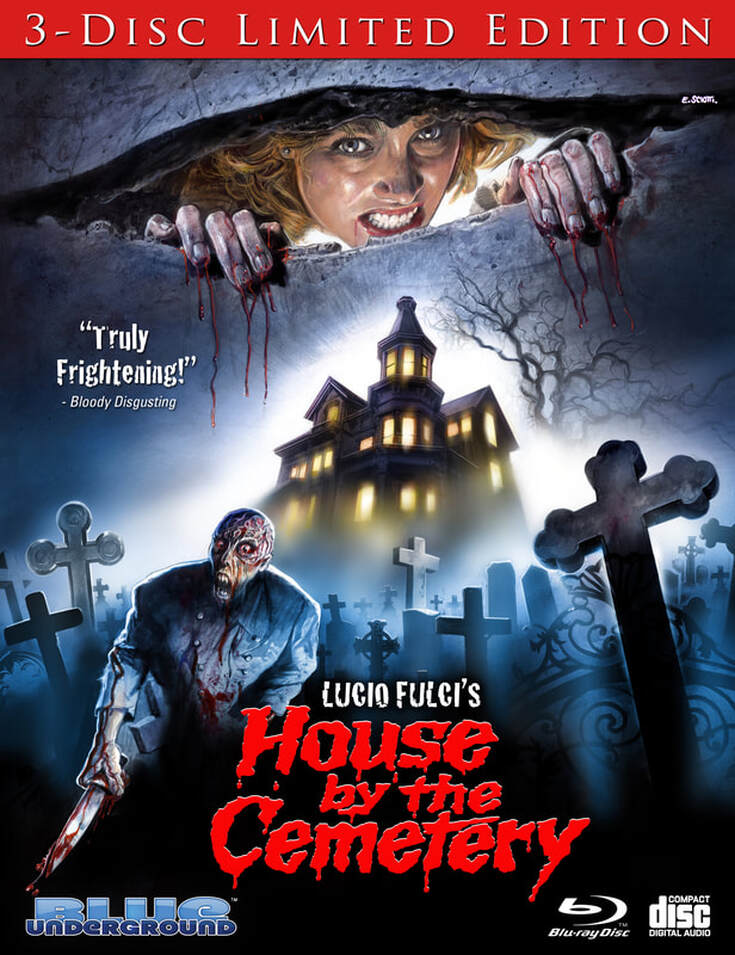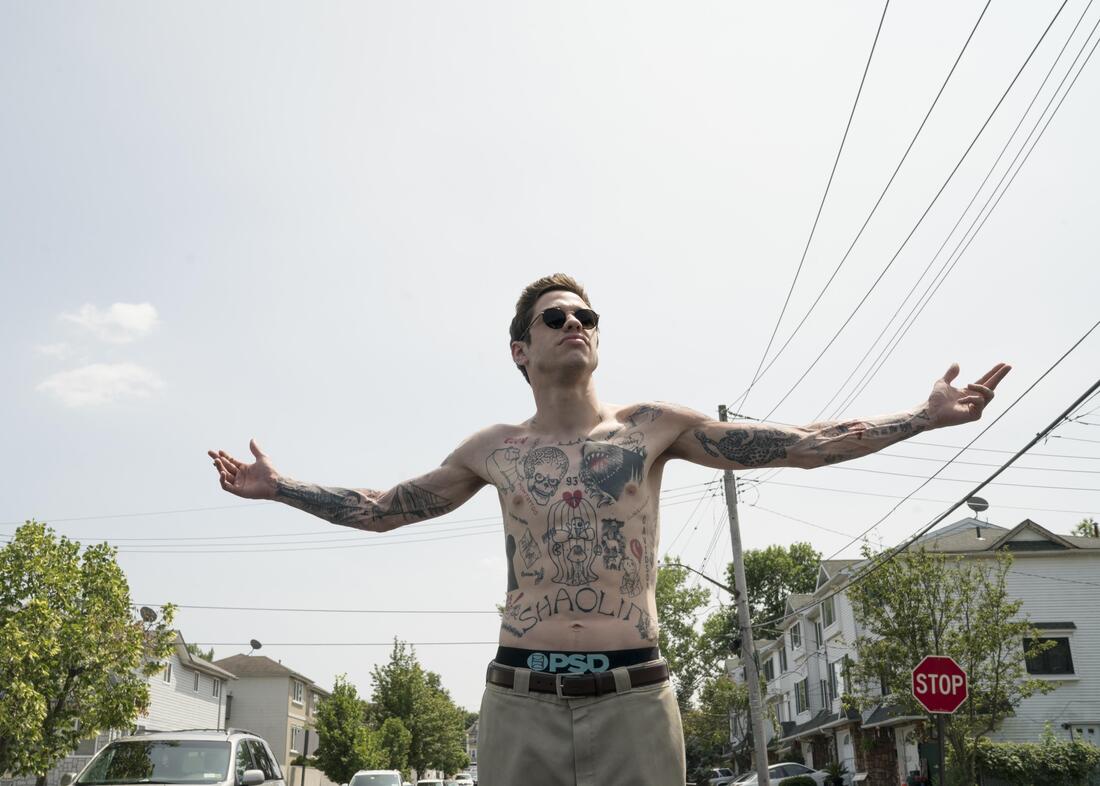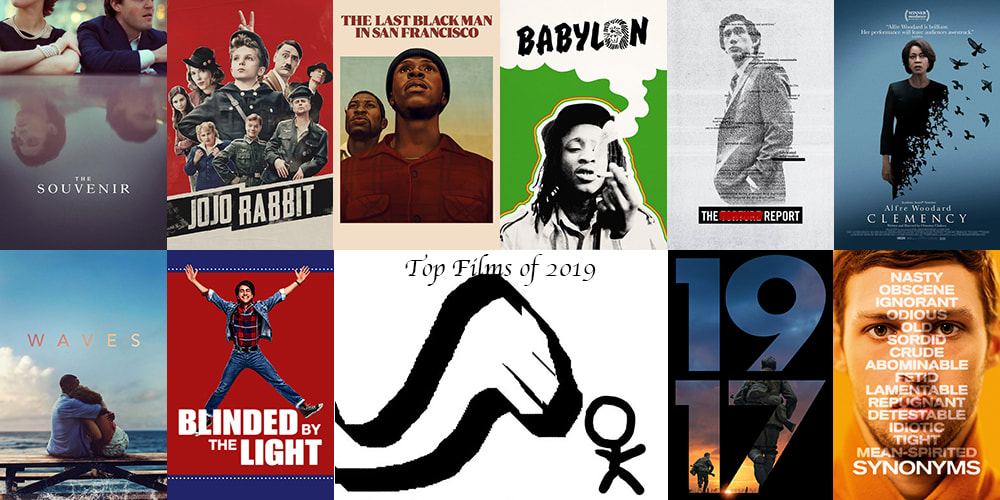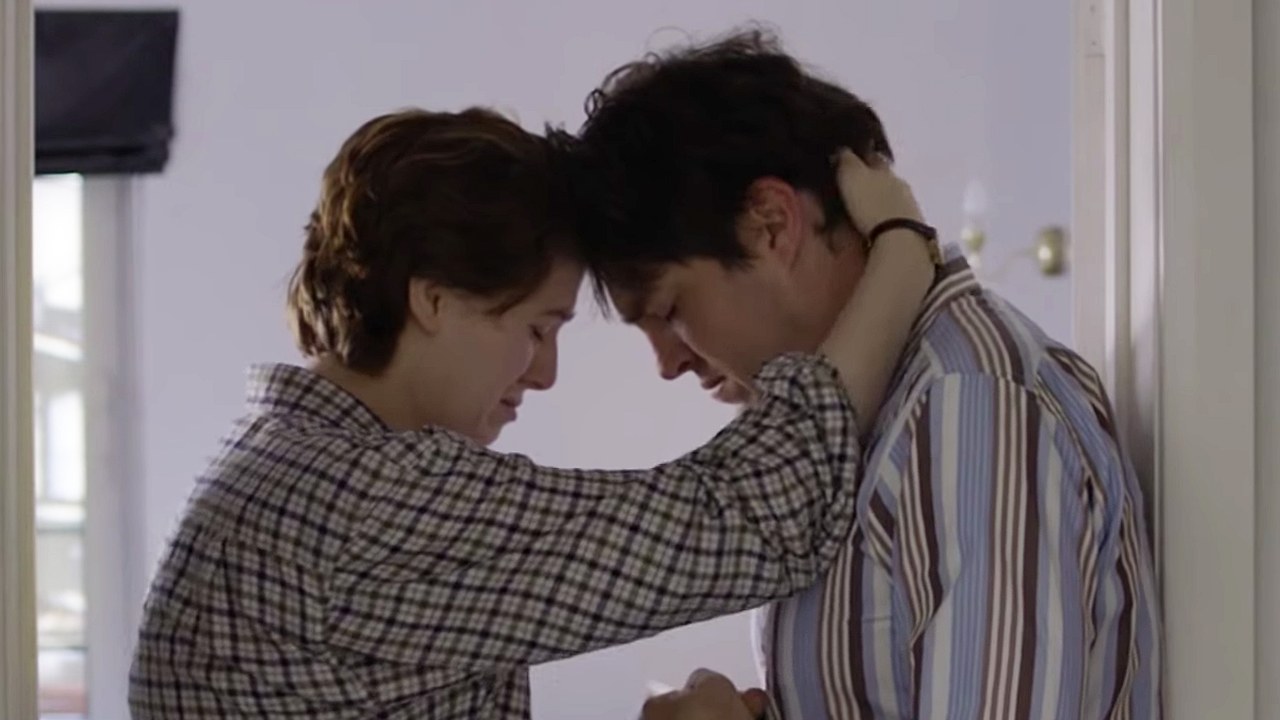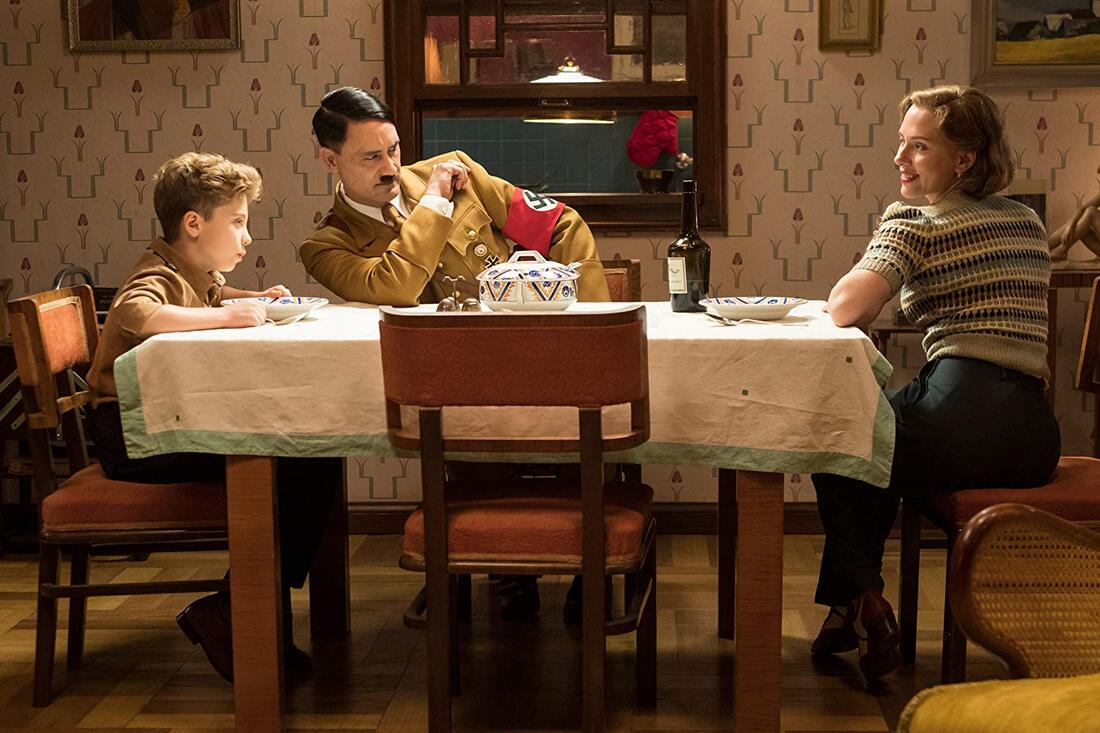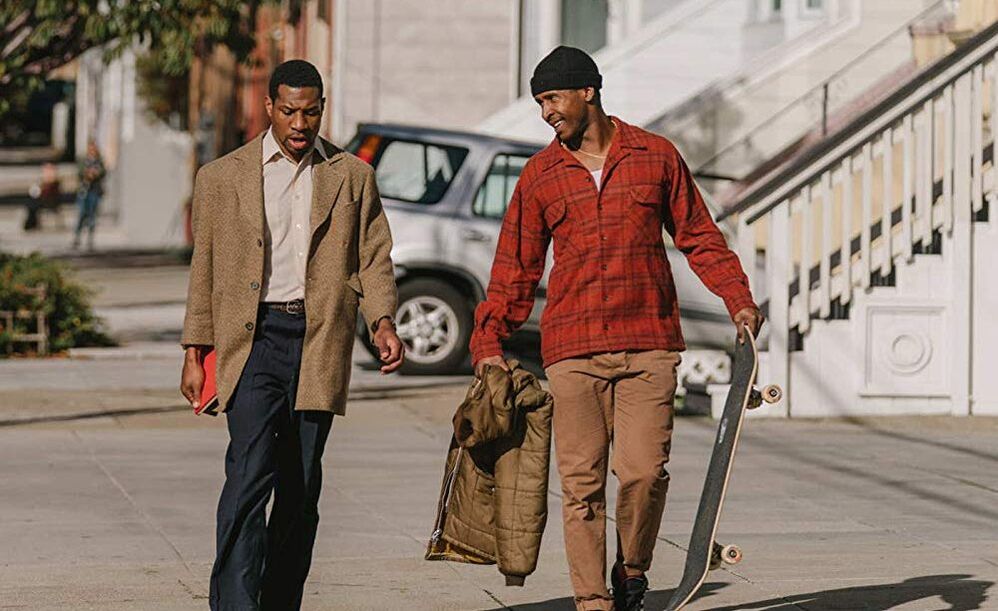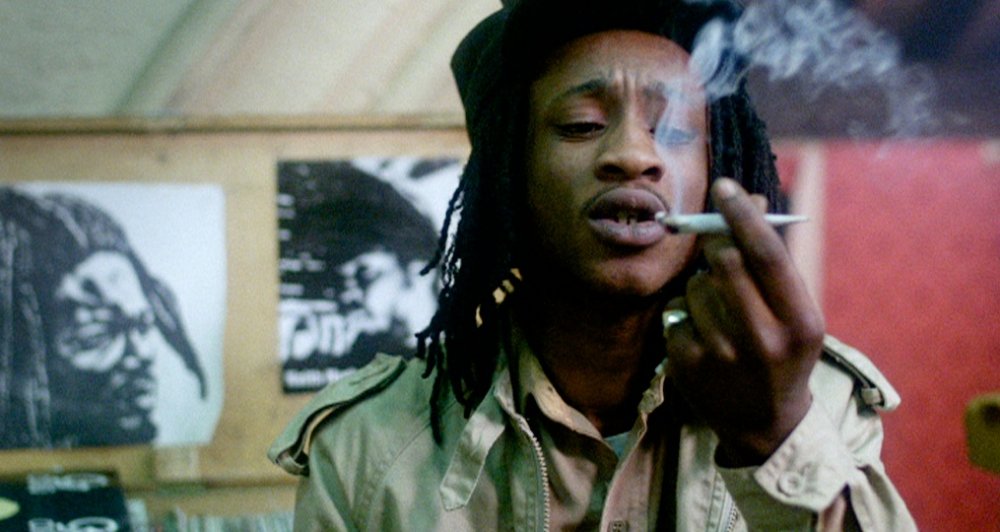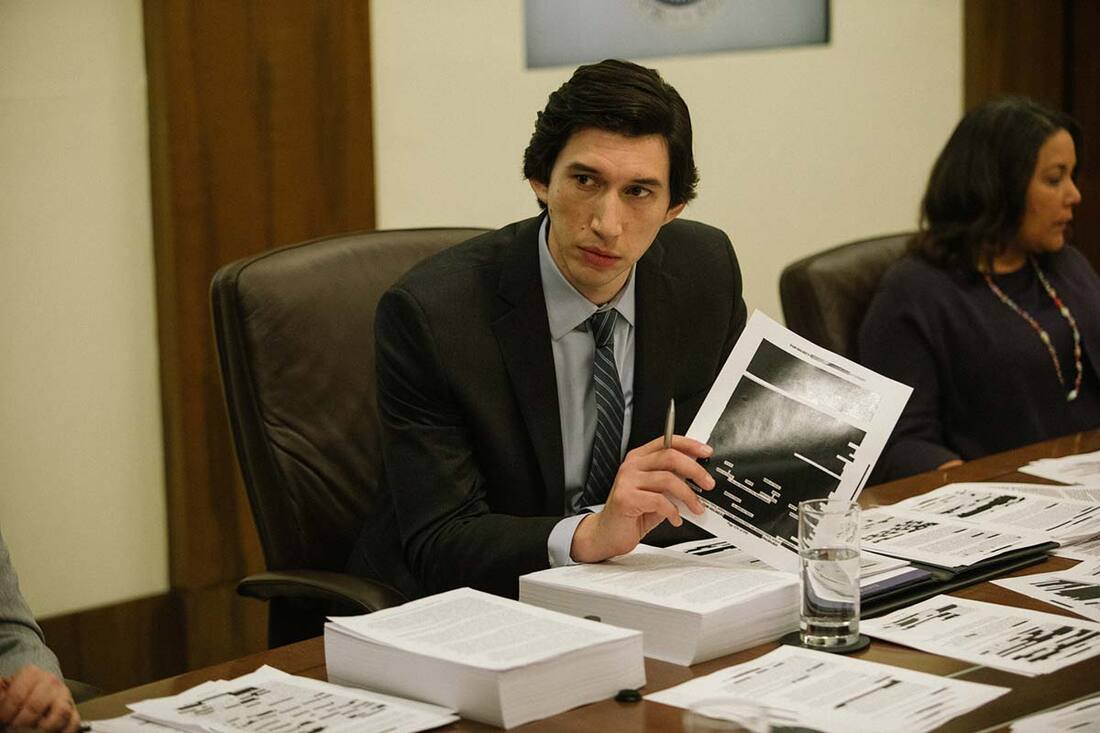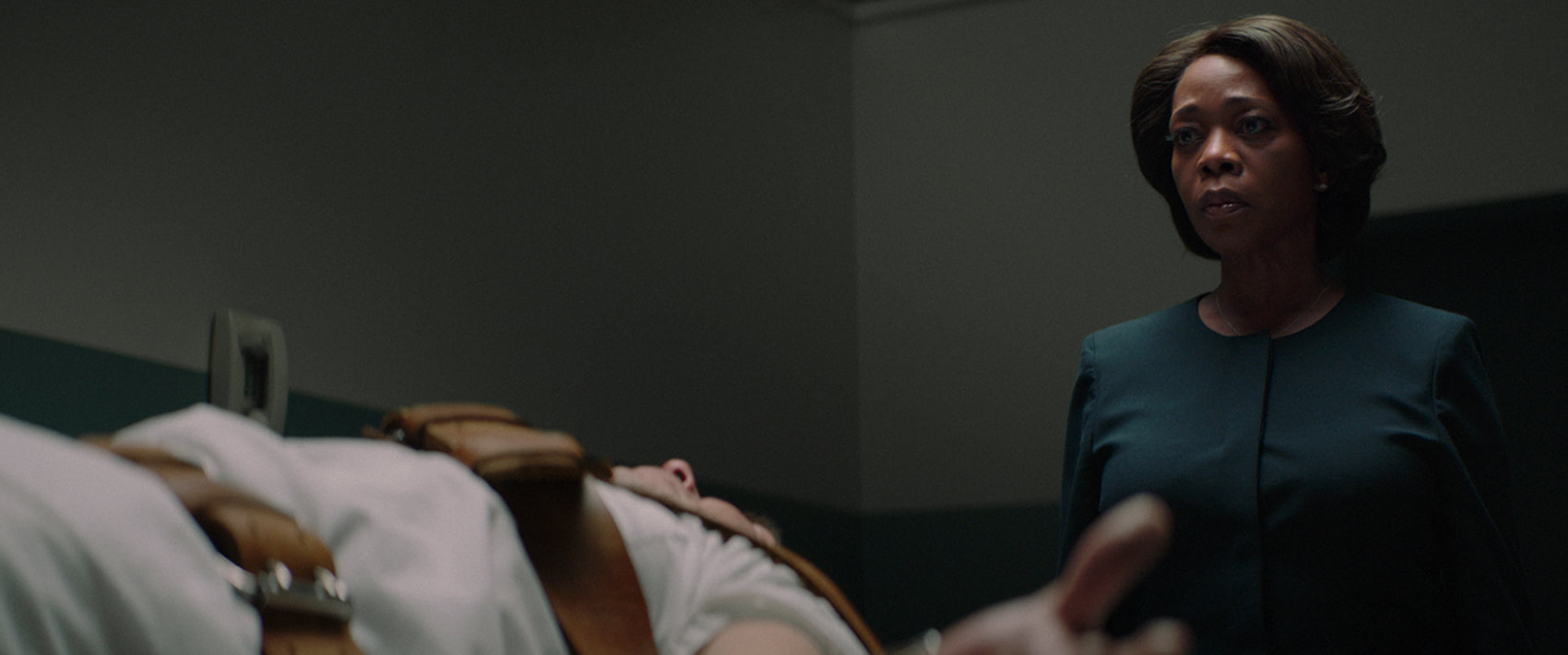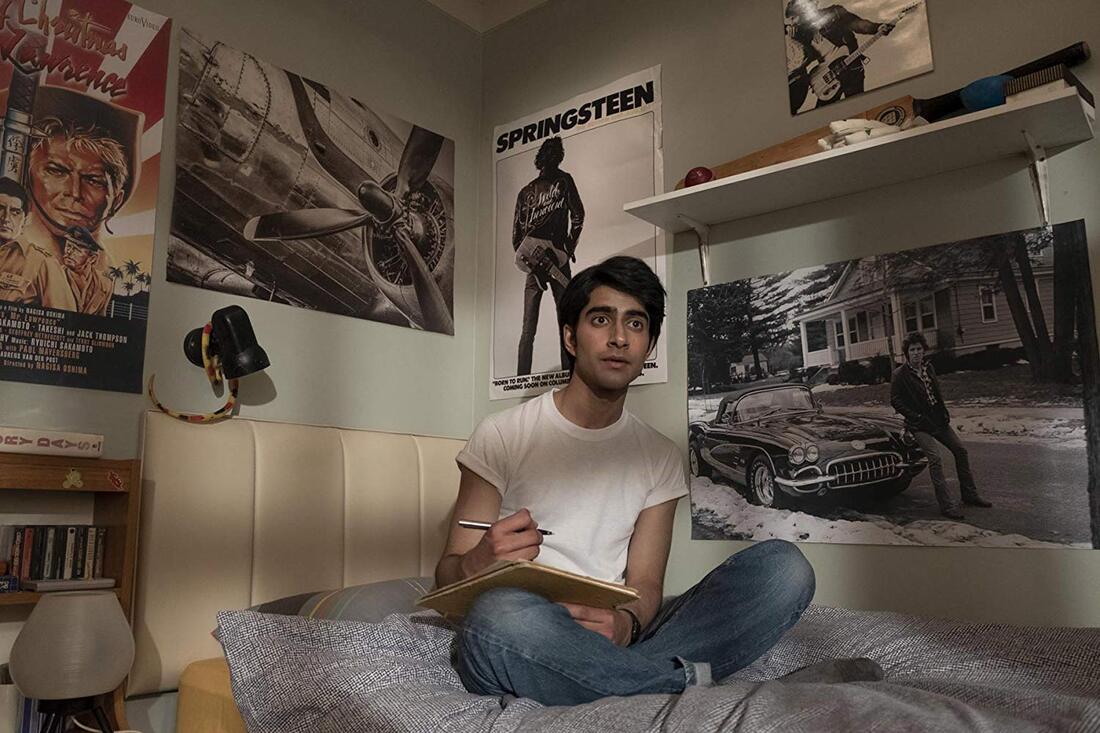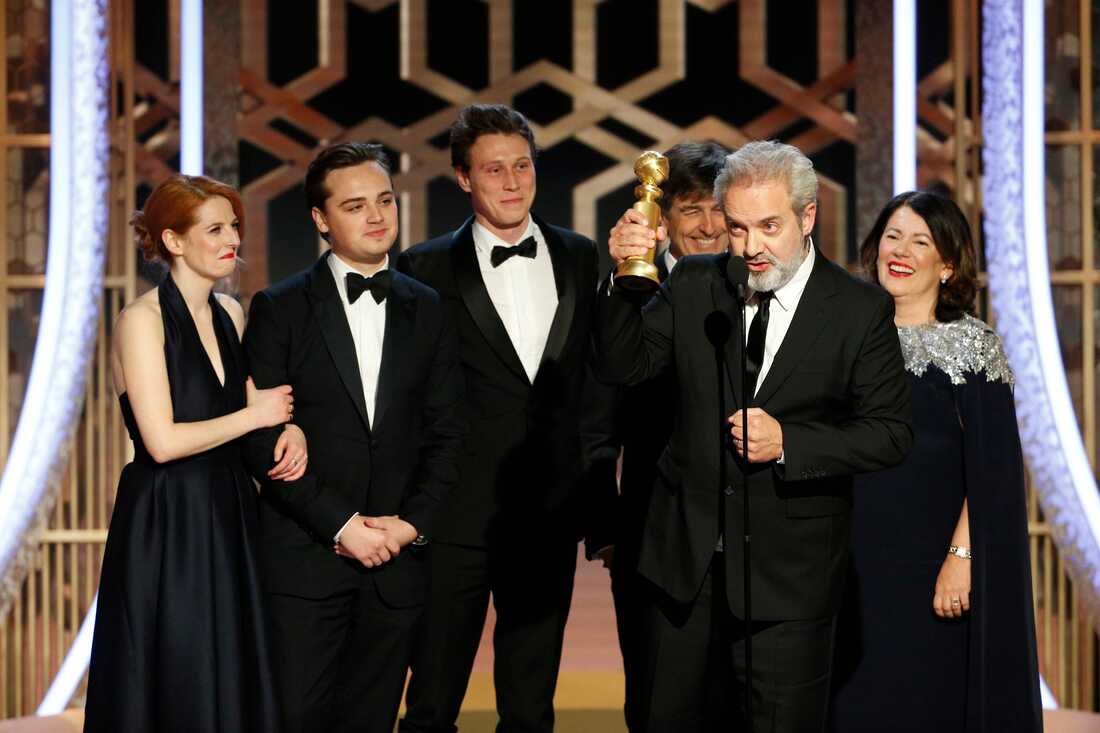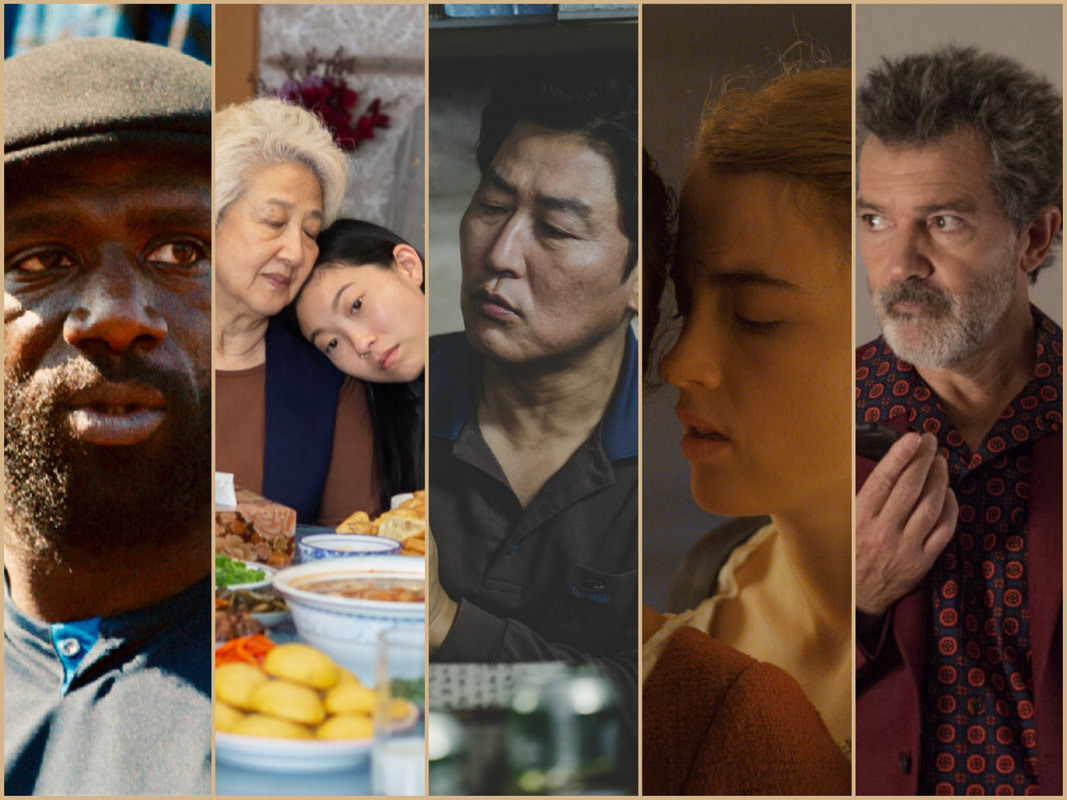|
By Sean Boelman This January, Blue Underground is releasing a new limited edition 3-disc 4K restoration of Lucio Fulci’s classic Italian horror flick The House by the Cemetery. The film is one of the most well-known by Fulci, the Godfather of Gore, whose other work includes Zombi 2, an unofficial Italian sequel to George A. Romero’s Night of the Living Dead.
The movie follows a family in a New England home as they are terrorized by a malevolent presence living in the basement remaining from the previous homeowner, a deranged doctor who conducted unimaginable experiments. Like many other imports from the era (the film was originally released in 1981), The House by the Cemetery is rather ridiculous, but herein lies a majority of the movie’s charm. Italian horror films don’t spend too much time on logic or plot, with an increased focus on atmosphere. Viewers who come into this movie expecting a tight, neatly-wrapped chiller aren’t the ones for whom this re-issue is intended. Rather, it is the genre fans who will love the film in all its messiness and absurdity that are most likely to find value out of this purchase. If Fulci’s movie does have one significant flaw, it is that it isn’t quite as fun as some of the genre’s most iconic films. Although there are plenty of memorable deaths, the movie ultimately peaks early, with the first killing arguably being the most gruesome and memorable. After getting off to a very strong start, the film does lose some of its steam, but it does regain some of it heading into the final act. As with any great movie like this, the main strengths of The House By the Cemetery are in its visuals. The practical effects and production design are both unreal, but that will certainly be expected by those who have already been initiated into the ways of the genre. As Fulci’s endearing nickname would suggest, some of the imagery in this is very gnarly, and admirably so. The new 4K restoration of the film does it quite a few favors. Restored from the original and uncut camera negative, this release of the movie is absolutely gorgeous to watch. The level of detail in the image really allows the colors in the film to pop, as is so important with this type of horror movie. Additionally, the ability to blast the wonderful score from a Blu-Ray disc is welcome. This release comes with plenty of bonus features, both new and archival. Some highlights from the bonus features include interviews with the stars and crew members (including new ones with the film’s co-writer and lead actress) and commentary from leading scholars in the horror community. Also included are a copy of the Original Motion Picture Soundtrack and a collectible booklet. A gorgeous restoration of an iconic slasher movie, this new release of The House by the Cemetery should make its way to the top of every horror fan’s wishlist. This film will almost certainly satisfy even the most gore-hungry viewer’s craving for carnage and mayhem. The new restoration of The House by the Cemetery arrives on Blu-Ray on January 21.
0 Comments
By Sean Boelman On January 15, the SXSW Film Festival announced the first batch of films that will be screening as a part of the 27th edition of the festival, which happens March 13-22, 2020 in Austin, Texas. Although this is only a partial glimpse at what the festival programmers have in store, the many exciting titles that have already been announced prove that this will be a festival to remember.
Perhaps the most high-profile announcement of the day was the announcement that the newest film from writer-director Judd Apatow (Knocked Up), The King of Staten Island, will be the opening night film of the festival. Starring SNL player Pete Davidson (who also co-wrote the film), the comedy is about a burnout who lives with his mother in Staten Island. The film releases in theaters in June. Additional narrative films announced in the “Headliners” section include Bad Trip, the hidden camera comedy starring Eric André, Lil Rel Howery, and Tiffany Haddish, and The Lovebirds, a mystery-comedy directed by Michael Showalter (The Big Sick) and starring Issa Rae and Kumail Nanjiani. Two documentaries, Beastie Boys Story, directed by Spike Jonze, and LA Originals, an exploration of Chicano culture, were announced in the section. Other sections that were announced today include: the Narrative Feature Competition, showcasing ten diverse narrative features, the “Spotlight Features” section, featuring high-profile features including one directed by John Leguizamo and one written by Alan Moore, the “Documentary Spotlight” and Documentary Features Competition, the “Visions” section, emphasizing innovative and creative filmmakers, the “Global” section, and the “24 Beats Per Second” section, featuring films centered around music. Also announced today were the series that will be making their premieres in the “Episodic” section of the festival. Arguably the most anticipated of the episodic premieres is that of Snowpiercer, the long-awaited television adaptation of Bong Joon-ho’s film of the same name. More interesting premieres include Solar Opposites, a new series from Rick and Morty creators Justin Roiland and Mike McMahan, and Tales from the Loop, based on the art of Simon Stålenhag. The rest of the program, including the films screening in the Midnighters, Festival Favorites, and Episodic Pilot Competition, in addition to some other films not yet announced, will be revealed on February 5. With the amount of films, including "Headliners", that were revealed in the second announcement last year, that is sure to be an exciting prospect for film fans everywhere. The full announcement can be found here. The 2020 SXSW Film Festival runs March 13-22, 2020 in Austin, TX. By Sean Boelman Now that 2019 has come to a close and most films have been released or screened (a few stragglers weren’t shown to regional critics until the beginning of January), it is time to look back and reflect on all of the cinematic offerings the last year of the decade had in store! In a year of many ups and downs, there are plenty of films audiences will remember: some for being the most out-of-touch films ever released and other for closing out series decades in the making. Yet there are also plenty of films that deserve to be remembered not for the impact their release had, but their quality and the impact they will have in the long run. Below are the ten best films to be released in 2019. 10. The SouvenirJoanna Hogg’s semi-autobiographical film The Souvenir is by no means meant for mainstream audiences. In fact, the film’s deliberately slow pacing has proven to be quite challenging for most viewers. However, the gorgeous visual style which Hogg brings to the film and the riveting second half make this a film that will easily stick in the minds of viewers who are not put off by the seeming lack of excitement early on. 9. Jojo RabbitThe highly-anticipated new film from cult favorite director Taika Waititi, Jojo Rabbit promised to be an “anti-hate satire” if that wasn’t clear from Waititi’s over-the-top lampoon of Adolf Hitler. Yet beyond the dark humor (which is often quite funny), the film is also an emotional story about a young boy trying to stand up for what he believes in a world that is trying to teach him the opposite. Although it isn’t quite as original as Waititi seems to hope it is, it is still a crowd-pleasing treat. 8. The Last Black Man in San FranciscoAfter receiving raves at Sundance, Joe Talbot’s The Last Black Man in San Francisco received a quiet summer release. Although the scale of the film is very small and personal, the film (inspired by the experiences of star Jimmie Fails) is both a love letter to the eponymous city and a beautiful tale of the meaning of home. Anyone who has ever felt out of place in their life will immediately connect with the film and its unique style. 7. BabylonBabylon is certainly the most unorthodox pick on this list, and that is because some would debate whether or not it was a 2019 film at all. A snapshot of British reggae culture in the late 20th century, the film was first shown in 1980 but went unreleased in the United States until early 2019 for fear that it would incite racial violence. At the very least, it’s an important piece of history, but it is also a phenomenal character study. 6. The ReportWhat makes Scott Z. Burns’s exploration of one of the most embarrassing cover-ups in American history so effective is that Burns figures out exactly how to crawl under the viewer’s skin. It is unlikely that any viewer will finish The Report feeling any less than infuriated by what they see happening on screen. Adam Driver and Annette Bening are both great, bringing an absolutely chilling delivery to Burns’s wonderful dialogue. 5. ClemencyThe single most heartbreaking film on this list, Clemency takes a searing look at the death penalty and the impact it has on not only the inmate, but also the executioner. Although this film may not get the attention it deserves because of a higher-profile similarly-themed film (Just Mercy) is hitting theaters around the same time, but the performances by Alfre Woodard and Aldis Hodge and the script by Chinonye Chukwu are among the year’s best. 4. WavesThe pick on this list that has likely been the most divisive among audiences, Waves is a wonderful coming-of-age story told with impeccable craft from writer-director Trey Edward Shults. Although the criticisms that some viewers have had of the film are valid, Shults’s heart is very much in the right place, and this ends up being a story about love that crosses the boundaries of age, race, and location. 3. Blinded by the LightOn the surface, Blinded by the Light is a conventional coming-of-age tale, but below that, it’s an exploration of the artistic process and how an artist is inspired. Fans of Bruce Springsteen have probably already seen this film, with a soundtrack comprised of some of the greatest hits by The Boss, but even those uninitiated to the music that inspired the autobiographical film and its writer Sarfraz Manzoor will find themselves touched by the inspiring story. 2. 1917Although it may not have the most substantial script of the year, 1917 is inarguably the most ambitious cinematic exercise to grace multiplexes, firmly earning it a spot on the higher end of this list. The cinematography by Roger Deakins is absolutely breathtaking, the editing seamless, and the direction from Sam Mendes impeccable, all coming together to make the film look as if it was shot in one continuous take. As a popcorn flick, it is extremely entertaining, but it’s also an emotionally resonant character-driven war film. 1. SynonymsUndeniably the most underseen film of 2019, Synonyms, the semi-autobiographical dramedy from Israeli filmmaker Nadav Lapid, is also one of the most resonate films of the decade. Likely to stick with viewers long after the credits roll, Lapid’s film offers one of the most effective explorations of identity to grace the screen in quite a long time. Although the unconventional narrative structure and ambitious form employed by Lapid are likely to alienate general audiences, the story is extremely hard-hitting and holds the same emotional impact across repeat viewings. It’s understandable why this film hasn’t yet caught the public’s eye, but at the same time, it absolutely deserves more attention. What were some of your favorites of 2019? One can only hope that 2020 offers just as many great films!
by Camden Ferrell Best Motion Picture -- Musical or Comedy
Once Upon a Time in Hollywood This category was a particularly strong one this year, but it was always clear that this was an award that Quentin Tarantino’s Once Upon a Time in Hollywood had secured. This film about an actor, his stunt man, and life in Hollywood is a joyful experience that definitely deserved the award. It beat out the hilarious murder mystery Knives Out, the playful anti-hate satire Jojo Rabbit, the dazzling Elton John biopic Rocketman, and the Eddie Murphy led Dolemite is my Name. Best Motion Picture -- Drama 1917 In one of the bigger surprises of the night, Sam Mendes’s World War I film 1917 won the award for best drama. This was an unpredictable category that featured some strong competitors. Both The Irishman and Joker were wildly popular films that fared a strong chance at the prize. In addition to those, Marriage Story and The Two Popes were other critical gems that were competing. Even though I have yet to see 1917, I believe that this is a choice that was ultimately refreshing and unexpected. Best Director -- Motion Picture Sam Mendes -- 1917 Another unpredictable category, Sam Mendes took home the award for 1917. His competition was extremely tough this year. He beat out Bong Joon-Ho, Martin Scorsese, Todd Phillips, and Quentin Tarantino for the award. All of these men garnered a lot of critical buzz, but it was surprising to see Mendes win. Even though I wasn’t a huge fan, I believed the award would have certainly gone to Scorsese due to the amount of buzz he was getting for The Irishman, but I can’t wait to see how Sam Mendes did when 1917 has its wide release this week. Best Screenplay -- Motion Picture Quentin Tarantino -- Once Upon a Time in Hollywood While Tarantino’s script for Once Upon a Time in Hollywood was solid and brought a lot of life to the heart of the film, its win is a bittersweet one. Noah Baumbach (Marriage Story) and Bong Joon-Ho (Parasite) wrote some of the most brilliant screenplays of the year but unfortunately lost to Tarantino. The film also beat out The Two Popes and The Irishman. Best Actor in a Motion Picture -- Musical or Comedy Taron Egerton -- Rocketman Taron Egerton’s role as Elton John in Rocketman was one of the best performances this year, and it deserved this award. Both Leonardo DiCaprio and 12-year-old Roman Griffin Davis both did stellar jobs as well this year, but not as well as Egerton. He also beat out Eddie Murphy and Daniel Craig who also delivered some really great performances this year as well. Best Actor in a Motion Picture -- Drama Joaquin Phoenix -- Joker It was inevitable, and nobody was surprised that Joaquin Phoenix took home the prize for Joker. It’s easily one of the most criminally over-hyped films in recent memory, and it didn’t deserve too much recognition. Although Phoenix wasn’t bad as an actor in the film, both Adam Driver (Marriage Story) and Antonio Banderas (Pain and Glory) were far more deserving of the award. It’s a disappointment, but not a surprising one. Best Actress in a Motion Picture -- Musical or Comedy Awkwafina -- The Farewell In another no-brainer choice, Awkwafina took home the award for her performance in The Farewell. She gave a subtle and deeply resonant performance that definitely deserved this award. Emma Thompson (Late Night) and Beanie Feldstein (Booksmart) both gave phenomenal performances, but this award was always going to be Awkwafina’s. She also beat out Ana de Armas (Knives Out) and Cate Blanchett (Where’d You Go, Bernadette?). Best Actress in a Motion Picture -- Drama Renée Zellweger -- Judy It appears the critical buzz around Renée Zellwegger for Judy didn’t subside as much as we thought. While she was fantastic in that movie, it seemed almost certain that the award would go to either Scarlett Johansson for Marriage Story or even Saoirse Ronan for Little Women. Cynthia Erivo (Harriet) and Charlize Theron (Bombshell) were both also up for the award. Best Actor in a Supporting Role in Any Motion Picture Brad Pitt -- Once Upon a Time in Hollywood While not a complete surprise, Brad Pitt’s win was a well-deserved one. His role as Cliff Booth in Once Upon a Time in Hollywood was one of the most enjoyable performances of the year and deserved this award. He faced some strong competition from Joe Pesci and Al Pacino (who most likely split their votes) as well as Tom Hanks for his empathetic portrayal of Mister Rogers. Anthony Hopkins (The Two Popes) also competed for the award. Best Actress in a Supporting Role in Any Motion Picture Laura Dern -- Marriage Story Laura Dern’s performance in Marriage Story was very well-done, but it didn’t deserve the award in this category. Jennifer Lopez’s performance in Hustlers was truly amazing, and it’s one of the best performances by an actress this year that deserved the award, and while Kathy Bates and Annette Bening gave some strong performances this year, they were probably less deserving than both Dern and Lopez. Dern also beat Margot Robbie who was nominated for Bombshell. Best Motion Picture -- Foreign Language Parasite Arguably the least surprising win was Parasite winning best foreign language film. This film has been riding an immense wave of critical and commercial acclaim since its premiere at Cannes. This darkly funny satire about class was a shoo-in for the award. Other competitors like Portrait of a Lady on Fire, The Farewell and Pain and Glory were phenomenal films that had the misfortune of competing against a movie as huge as Parasite. Best Motion Picture -- Animated Missing Link Easily the biggest surprise of the night, Missing Link beat out some strong competition. Laika has historically been overshadowed by Disney and their films. It seemed very plausible that Toy Story 4 would take the prize or even Dreamworks’s How to Train Your Dragon sequel. However, it’s a highly pleasant surprise for this delightful stop-motion animated film to win the award. Best Original Score -- Motion Picture Hildur Guðnadóttir -- Joker Admittedly, one of the few virtuous aspects of Joker is its very competent score. However, Randy Newman’s score for Marriage Story was heartachingly beautiful from start to finish and definitely deserved the award. Alexandre Desplat also delivered a sweet and poignant score for Greta Gerwig’s Little Women. Hildur Guðnadóttir’s score also beat out the scores for 1917 and Motherless Brooklyn. Best Original Song -- Motion Picture (I'm Gonna) Love Me Again -- Rocketman Elton John’s song (I’m Gonna) Love Me Again definitely deserved this award, but it had some competition. Into the Unknown from Frozen II was my prediction due to how popular the film is and the previous success of its writers. The song from Rocketman also beat out some fairly strong songs from Cats, The Lion King, and Harriet. By Sean Boelman In recent years, the race for Best International Film has gotten increased publicity, with last year’s Roma and this year’s Parasite being critical and audience favorites entering the greater Best Picture conversation. However, despite the benefits of heightened attention for the contenders, a majority of the buzz seems to be going to the one frontrunner. The purpose of this article is to help make people more aware of the other great nominees.
The clear favorite to win the award (both the Golden Globe and the Oscar) is the South Korean film Parasite. A wickedly funny dark satire, Bong Joon-ho’s film follows a lower-class family as they slowly infiltrate the lives of their wealthy employers. Bong has quite a bit on his mind with this film, and he tells it in a way that is consistently entertaining and surprisingly accessible to general audiences. Additionally, the film is absolutely gorgeous, the cinematography and production design being among the best of the year. Still, even though it is excellent, it still feels like the least deserving of the contenders in a completely stacked category. Another film likely to translate its Golden Globe recognition into an Oscar nomination is Ladj Ly’s French thriller Les Misérables. Not to be confused with the musical inspired by Victor Hugo’s 1862 classic novel, Ly’s film is an exploration of police brutality within the modern French police system. This is likely the most thought-provoking and challenging film of the bunch, and while not all of its ambitious swings hit, this is certainly a very timely and important film. Though it lacks the polish of Parasite, Ly’s gritty style fits the film perfectly. The final Golden Globe nominee that is likely to also show up in the Oscars race is Pain & Glory, a semi-autobiographical drama from Spanish director Pedro Almodóvar. Antonio Banderas is considered a favorite for his wonderful performance as a film director who is reflecting on the mistakes he has made over his lifetime. Quiet and contemplative, the film is one of the more low-key nominees, but Almodóvar still brings a distinguished and intriguing visual style to his story. What truly makes this film stand out, though, is its undeniably personal nature. What is surprising about this year’s Best International Film race is that the two best films vying for the Golden Globe have no chance of being nominated for the Oscar. Portrait of a Lady on Fire, Céline Sciamma’s elegant French lesbian romance, was passed over by the French selection committee in favor of Les Misérables. Although both films theoretically deserve a nomination, Portrait of a Lady on Fire is the clearly superior film with its nuanced but deliberate story and breathtaking cinematography. The final (and arguably best) nominee for the Golden Globe for Best Foreign Language Film is the one that shouldn’t be there. Since the Golden Globes still have it as a “foreign language” category, Lulu Wang’s autobiographical dramedy The Farewell was relegated to this competition instead of the main categories in which it rightfully belongs. The film’s premise, hiding a family member’s terminal condition from them, is rooted in a cultural practice unknown to most viewers, and that is what makes the film so intriguing. Also of note are Wang’s hilarious script and great performances from Awkwafina and Zhao Shuzhen (the former of whom was nominated as well). This batch of nominees is indicative of some of the greater issues with the awards system. For the Golden Globes, films that are nominated in the Best Foreign Language Film category are not eligible to be nominated in the two main competitions, resulting in two films that arguably deserve a nomination in these more prestigious categories being relegated to a lesser laurel. The issue in the Oscars race for Best International Film is even more frustrating, though. With the current nominations process, each country only gets to submit a single film as their representative in the awards. In a year such as this, in which there are two worthy contenders from a single country (Les Misérables and Portrait of a Lady on Fire from France; Synonyms and Incitement from Israel), some films that deserve (and arguably even need) this added attention won’t get it. Even though the idea of an award honoring the best in international cinema is welcome and necessary, there is a better way to go about it. |
The Snake HoleRetrospectives, opinion pieces, awards commentary, personal essays, and any other type of article that isn't a traditional review or interview. Archives
June 2024
Categories
All
|
|
|
disappointment media
Dedicated to unique and diverse perspectives on cinema! |

